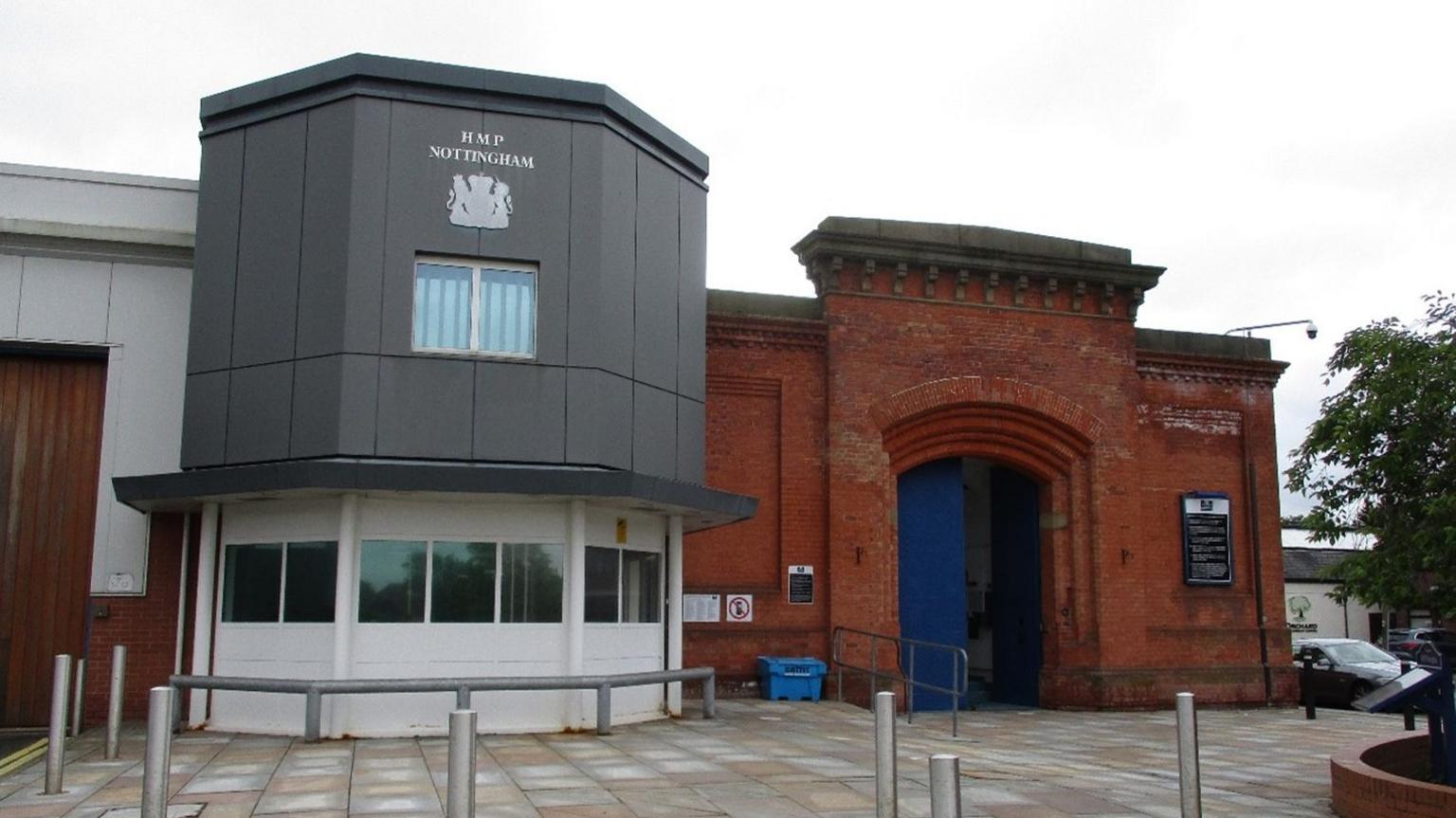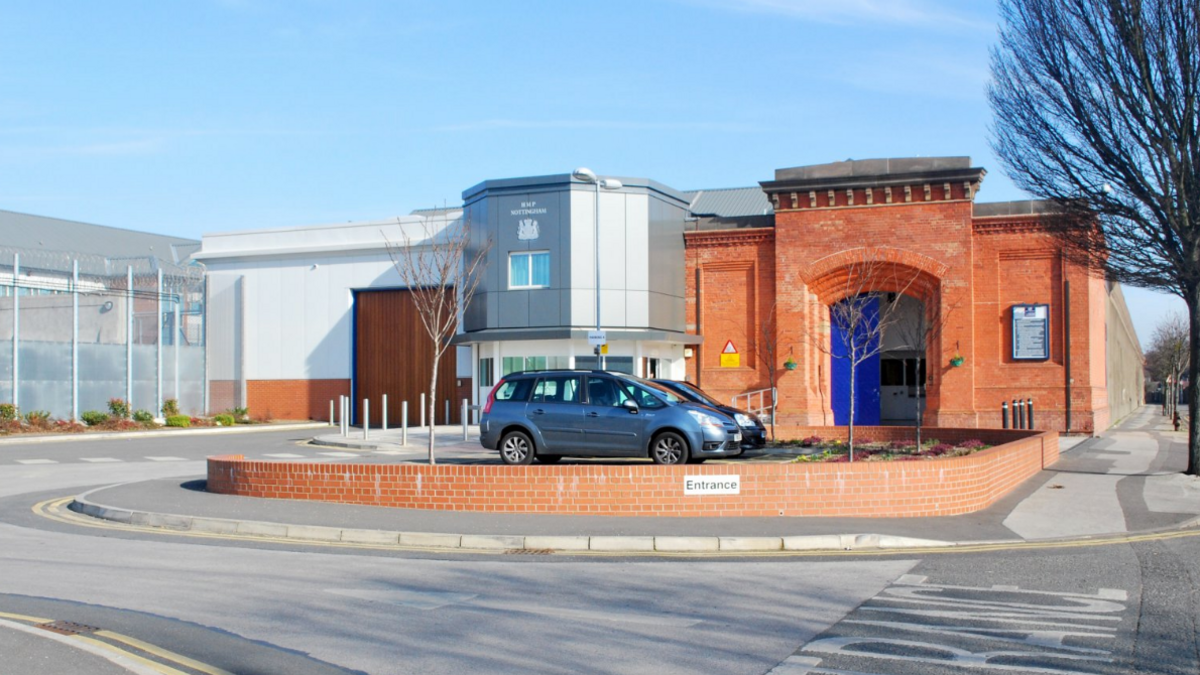Inmates reoffending after early release - watchdog

Inspectors said the number of inmates who were homeless when they were released early was "astonishing"
- Published
Inmates being released early in a bid to reduce overcrowding at a prison are reoffending and being recalled, an inspection has found.
The early release scheme - known as the end of custody supervised licence (ECSL), was brought in by the previous Conservative government in a bid to ease prison overcrowding.
Now a new report has revealed a quarter of HMP Nottingham prisoners released under the scheme were homeless, leading to "inevitable recalls", said chief inspector of prisons Charlie Taylor.
Mr Taylor said while it was "uncertain how many had been recalled", the number of inmates who were homeless when they were released early was "astonishing".
At HMP Nottingham, preparation for the early release of inmates under the scheme was "often chaotic and rushed", despite staff "doing their best", the HM Inspectorate of Prisons report, published on Monday, said.
"A quarter of prisoners released on this scheme were homeless and although data was not clear, it resulted in inevitable recalls," Mr Taylor said.
"Overall, Nottingham is a jail that is coping with the many challenges that it faces, but it remains a fragile institution that carries a lot of risk within its constantly churning population."
The early release scheme was introduced by Rishi Sunak's Conservative administration in October, initially releasing prisoners 18 days early.
That measure was expanded over the past six months, from 18 days to 35 in March, and then to 70 days in May.
However, Lord Chancellor Shabana Mahmood announced in July that she would replace the scheme, instead temporarily reducing the proportion of certain custodial sentences.
It means that from September, when the changes come into force, some prisoners will automatically be released after serving 40% of their sentences, with "important safeguards and exemptions to keep the public safe", the government previously said.
'Considerable pressure'
When inspectors visited HMP Nottingham in May, there were 924 inmates at the Category B prison.
They found the jail had an "enormous churn of prisoners", including those coming from as far away as North Yorkshire and County Durham.
According to the findings, the early release scheme was "putting considerable pressure" on prison bosses and the "understaffed offender management unit".
In response, a Ministry of Justice (MoJ) spokesperson said: "Prisons are in crisis, placing significant pressure on the whole justice system and those working in it.
"That's why the new Lord Chancellor announced in July that she was scrapping the old early release scheme and replacing it with a system which gives probation staff more time to prepare for a prisoner's release, including providing them with the vital services they need as they leave the prison gates."

Inspectors described an "enormous churn of prisoners", including those coming from as far away as North Yorkshire and County Durham
Inspectors also found prisoners were being locked in their cells for up to 23 hours a day.
"The regime at Nottingham was too restricted, with many prisoners locked in their cells for 22 hours a day.
"On days when there was staff training, prisoners were behind their doors for 23 hours and did not even get a shower," Mr Taylor said in the report.
He added it was "not surprising that levels of self-harm remained high".
Levels of violence between prisoners was also high, the chief inspector added.
The prison was previously branded "dangerous" by former chief inspector Peter Clarke.
In 2018, it was the first jail to be issued with an urgent notification letter, to make immediate improvements, after a number of prisoners took their own lives. The most recent report, found concerns around self-harming had not been addressed since the last inspection.
An MoJ spokesperson added: "Staff at HMP Nottingham are reviewing the daily regime and exploring options for increasing time out of cells so prisoners can get the education and training they need to turn their backs on crime."
Follow BBC Nottingham on Facebook, external, on X, external, or on Instagram, external. Send your story ideas to eastmidsnews@bbc.co.uk, external or via WhatsApp, external on 0808 100 2210.